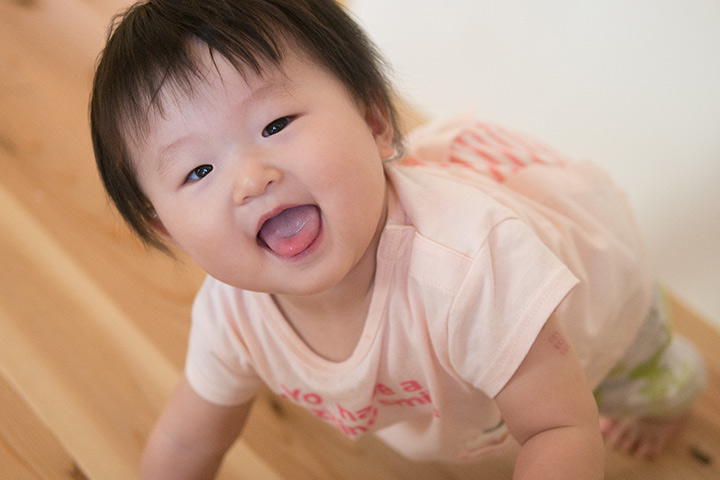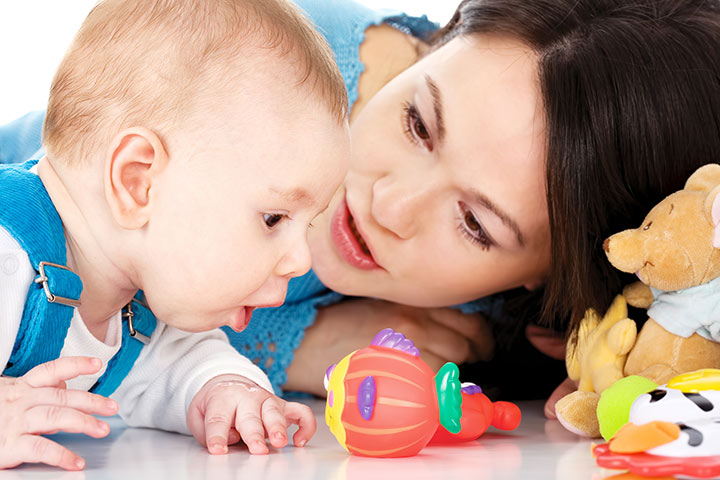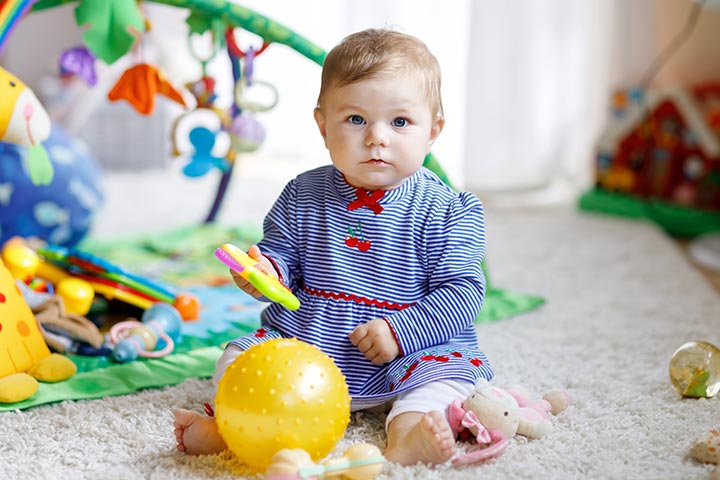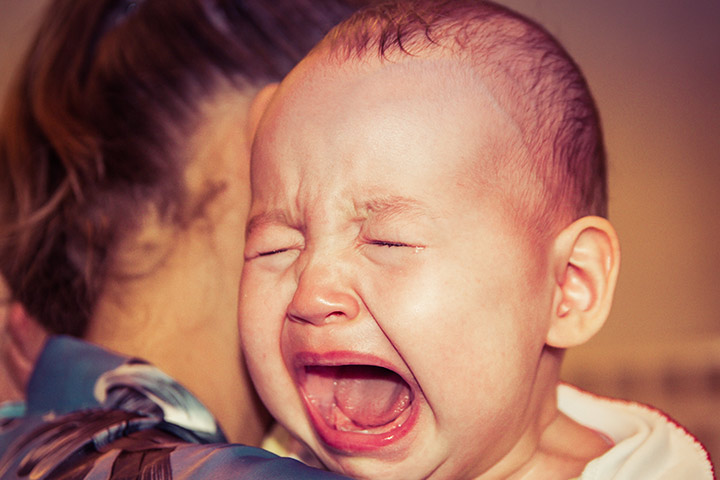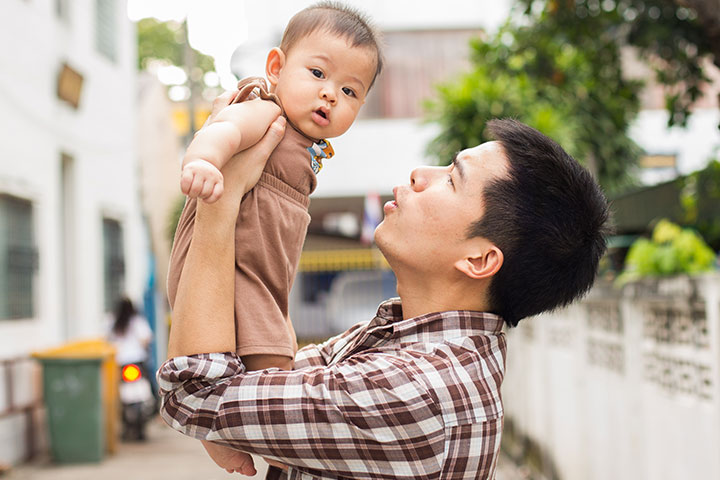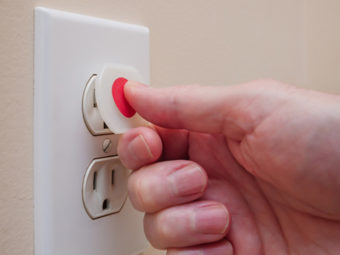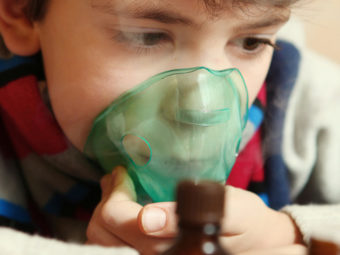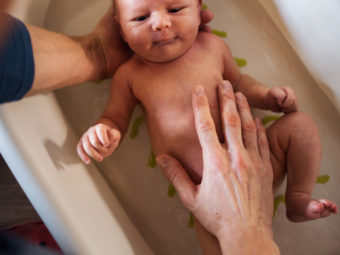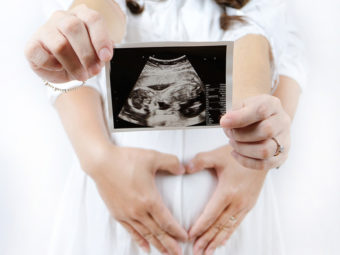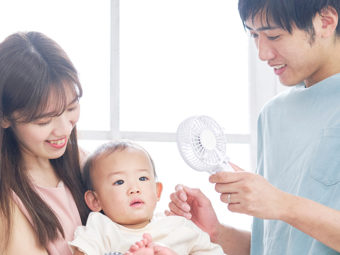
Image: Shutterstock
For every mother, her baby means the world to her. And, her love magnifies further when the baby happens to be differently-abled. These are babies who may be born with an unfortunate disability. However, this certainly does not mean that they are any less than the other babies. These little angels are also often born with some trait or the other that is quite supreme as compared to the others. However, the silver lining is that certain disabilities can be prevented or managed better if they are detected early on. One such disability that parents should be aware of is the hearing loss in infants. Generally, this condition is diagnosed soon after birth (1). But, if it doesn’t show up at that time, you could watch for a few common symptoms to check if your baby has hearing loss. Here it goes:
1. Not Startled By Loud Noises
It is pretty natural for babies to get startled by sudden, loud noises; something they experience even in the womb. Therefore, check your baby’s reaction by creating sudden noise when he/she is busy playing with himself/herself. If your baby continues to play and does not startle despite a sudden noise, then this may be due to potential hearing loss.
2. Difficulty Pronouncing Vowel Sounds
One of the first sounds that babies learn to make is actually vowel sounds. Making sounds like A, E, I, O, and U comes easily to them. However, if your child makes these simple sounds that taper off, then it is a cause for concern.
3. No Tone Variation
Whenever babies cry, their tone varies because they can hear themselves. But, a baby with a hearing loss cannot hear his/her own voice. That is why he/she may cry out either too loud or too soft, but in the same tone without any variation.
4. No Response To Familiar Voices
Babies learn to respond to their parents’ voices, especially of the mother, inside the womb itself. So, it’s obviously unusual if your baby does not respond to these familiar voices. The same holds true for your baby’s reaction to music.
5. Does Not Turn Around When Called
It is a normal response for us to turn around when we are called by our names. Your baby will show no such reactions when called by his/her name or to attention-grabbing sounds if he/she is unable to hear.
6. Does Not Enjoy Musical Toys
Babies usually get attracted to musical toys. Look out for the kind of toys your baby picks up. If your baby shows preference only to illuminated or colorful toys and does not enjoy the musical ones, this could also be one of the indicators of a probable hearing loss. Do check with your doctor before you jump to a conclusion.
7. No Babbling
婴儿通常太急于与沟通ir parents. Usually, babies start babbling by the time they are around 8 months or so. But, for a baby with some sort of hearing loss, babbling will be difficult just like the vowel sounds. Or, in some cases, it might be completely absent.
8. Doesn’t Soothe Down With Soft Sounds
A baby crying out of hunger or sleep is quite common. Once the mother attends to the baby’s need, either the baby will quieten down automatically or the mother will make soothing sounds to calm him/her down. However, if your baby does not respond to such ‘shooing’ or lullabies, it could be because he/she cannot hear you.
9. Does Not Mimic Parents
Babies are great at mimicking their parents’ language just by hearing them, almost in a parrot-like manner. However, if your baby is unable to mimic your words despite dedicated attempts, it could be because of a potential hearing loss.
10. Not Reaching Speech Milestones
By the time your baby is around 15 months, he/she should be using single words. By the age of 2, your baby should be able to create 2-word sentences (2). If your baby hasn’t reached these milestones, then hearing loss could be the cause of it.
If you notice any or all of these symptoms, reach out to your pediatrician immediately. Your doctor will certainly help you understand the condition better and guide you through the different treatment options available.
All of us wish good health for our babies. But sometimes, disabilities, especially those caused at the time of birth, catch us unaware. However, it is important not to feel let down or lonely. Remember that your baby is as special as always. With your loving care and the right kind of medical intervention, your baby will definitely grow up to lead a healthy life! Amen!

